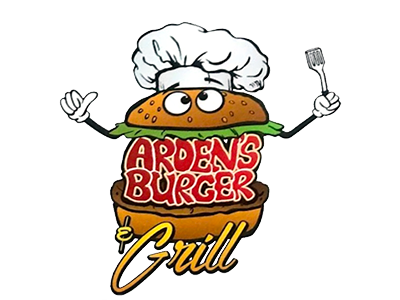With the success that fans have seen with the Clemson football team in recent years, it all comes back to the program’s legacy. Teams build themselves on their past, creating legends of the past that current players look up to and strive to be like. For some Clemson Tigers, these legends can be traced all the way back to the roster of the Tigers’ first championship team in 1981. It was a true underdog story, where an unranked Clemson team at the beginning of the year defied the odds and became the kings of the college football world for the first time, defeating the Nebraska Cornhuskers in a game that will be remembered forever in Death Valley. With plenty of all-time classic games in the Tigers’ road to the championship, the moment of the school’s first national championship is arguably the best moment in Clemson’s history.
How did we get here?
The Clemson Tigers in the 1980-1981 season were on the rise, holding their own in key games to get some fans excited for the next season. Despite finishing with a record of 6-5, the Tigers stood strong against ranked opponents Georgia and North Carolina, losing by one score in each game. They finished the season on a high note, defeating No. 19 South Carolina in dominant fashion to create momentum going into next season. Tigers on the offensive side, like quarterback Homer Jordan, running back Chuck McSwain and receiver Perry Tuttle were beginning to bloom into great players. On the other side of the ball featured defensive monsters Jeff Davis, Terry Kinard and Jeff Bryant. This defense was also gaining a serious prospect, with defensive tackle William Perry joining the Tigers for his freshman season. Clemson head coach Danny Ford was entering his fourth season in the fall of 1981, and there was hope that the Tigers could start in the way that they finished a season before.
That’s just how it went, with the Tigers starting off the season 2-0, with wins against Wofford and Tulane to gain momentum going into their next game. With no worries in their first game against the Terriers, Clemson started off down 5-0 in the first quarter against the Green Wave but came back through a running back Cliff Austin touchdown and two field goals to cement the victory.
𝗧𝗵𝗿𝗼𝘄𝗯𝗮𝗰𝗸: 1981 𝘊𝘭𝘦𝘮𝘴𝘰𝘯 𝘍𝘰𝘰𝘵𝘣𝘢𝘭𝘭 𝘢𝘵 𝘵𝘩𝘦 𝘚𝘶𝘱𝘦𝘳𝘥𝘰𝘮𝘦
— Clemson Football (@ClemsonFB) January 10, 2020
Vault footage from Clemson's trip to play Tulane in the Superdome in 1981, the year we won our first National Championship. It was also our first-ever game played indoors.#ALLIN pic.twitter.com/3ebGE2x96c
The first real test came against the best of the best, with the reigning champions, the No. 4 Georgia Bulldogs, coming to Death Valley to face an unranked Clemson team. The biggest name on this Georgia team? Herschel Walker, who would be an eventual Heisman winner and was almost impossible to stop. But the Clemson defense had an answer. Not only did they contain the Georgia standout, but they forced nine turnovers, which remains a school record. They turned defense into enough offense, with a Perry Tuttle touchdown highlighting the scoring, and the Tigers shocked the world, upsetting Georgia 13-3 to start the year 3-0.
Clemson won five straight after that, including an 82-24 blowout over Wake Forest to go into their next big matchup, a meeting with No. 9 North Carolina in Chapel Hill. Once again, the Clemson defense held strong, holding the Tar Heels to eight points, and after fullback Jeff McCall and a field goal, it was all the Tigers needed, moving up to the No. 2 team in the country with two games to go before the postseason.
After another dominant performance against Maryland, Danny Ford and his team went into Columbia and took down the South Carolina Gamecocks once again. With the win, Clemson was 11-0, the first time in school history and the No. 1 team in the country. There was one final test before the Tigers could be crowned champions, and it was a matchup against the No. 4 Nebraska Cornhuskers in the Orange Bowl.
Nov 21, 1981: #Clemson closes out its first perfect regular season (11-0) since 1948 with a 29-13 win over South Carolina in Columbia. In both the 1948 and 1981 games, a blocked punt proved crucial to the win and the ensuing perfect season. pic.twitter.com/lQyzFDrvBm
— Tiger Sports History (@Tiger_Timeline) November 21, 2022
The Game That Changed It All
Before kickoff even started, the stakes were raised. With the No. 2 and No. 3 teams in the country falling in the earlier bowl games, Georgia and Alabama, the game meant that whoever won the Orange Bowl would be crowned champion of college football that year. It was Clemson who pounced on the opportunity first, helped by their defense once again. On a Nebraska drive, the Tigers were able to get to Huskers quarterback Mike Mauer before a pitch play, causing a fumble and giving the Tigers an excellent field position. Kicker Donald Igwebuike hit a field goal to open the scoring and gave Clemson the first lead. Later in the first quarter, the Huskers would take the lead off of a trick play, giving running back Mike Rozier a passing touchdown to receiver Anthony Steels to take the lead. Right before the quarter ended, however, Igwebuile would continue his early game heroics, nailing a 37-yard field goal to cut Nebraska’s lead to one.
In the second quarter, however, the Clemson defense did what they do best: turn defense into offense. On a Nebraska drive, the Tigers were able to force their second fumble of the game, receiving the ball on the opponent’s side of the field The drive after was Clemson’s first touchdown of the game, with Cliff Austin punching in a two-yard run on the goal line to take a 12-7 lead going into halftime.
With the third quarter being the most important quarter for the Tigers to hold their lead, the team delivered. In one of the most historic drives in Clemson history, the Tigers strung together a 75-yard drive that was capped off with Homer Jordan finding Perry Tuttle in the end zone on a 13-yard pass. With the defense remaining strong, Clemson added yet another field goal, and it was now a 22-7 lead for the Tigers with 15 minutes left until they were champions.
But the Huskers did not go down without a fight and strung together a great drive to put themselves back into firing range, using their running back Roger Craig to lead the attack. After a 69-yard drive, Craig broke free and scampered into the end zone on a 26-yard run. After a successful two-point conversion, Nebraska was a possession behind, and only needed a touchdown to tie the game with nine minutes remaining. After the offense was unable to chew the clock down enough, the Huskers got the ball back with under eight minutes to go, and it all relied on the Clemson defense.
With penalties being an aid to the Tigers, the defense that was so dominant that whole season prevailed once again, forcing a punt and chewing the clock down to six seconds before giving the ball back to Nebraska. After batting down an attempted Nebraska Hail Mary, the clock struck zero, and the Tigers were champions for the first time in school history.
🎥 #ChampionshipMoments 1981
— Pick Six Previews (@PickSixPreviews) January 10, 2022
CLEMSON 22 | NEBRASKA 15
Hail Mary attempt fails, and Danny Ford secures Clemson’s 1st National Title pic.twitter.com/DFB2px5LAb
With Jordan and Jeff Davis given the MVP awards, the entire Clemson roster broke into celebration, with Danny Ford leading the charge. The Tigers had shocked the world, and this team would go down not only in the history of Clemson but the history of college football. Without this championship season, who knows where Clemson would be in the world of college football?
But if one thing is for certain, it is that one of the greatest games and moments in Clemson’s history was the first championship win that put a small town in South Carolina on the top of college football for the first time.






